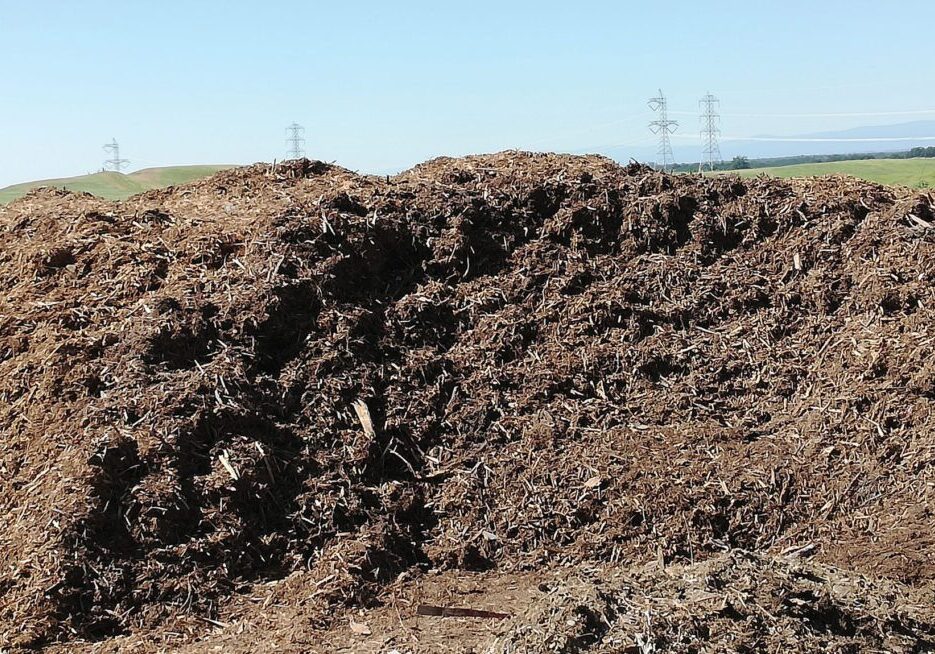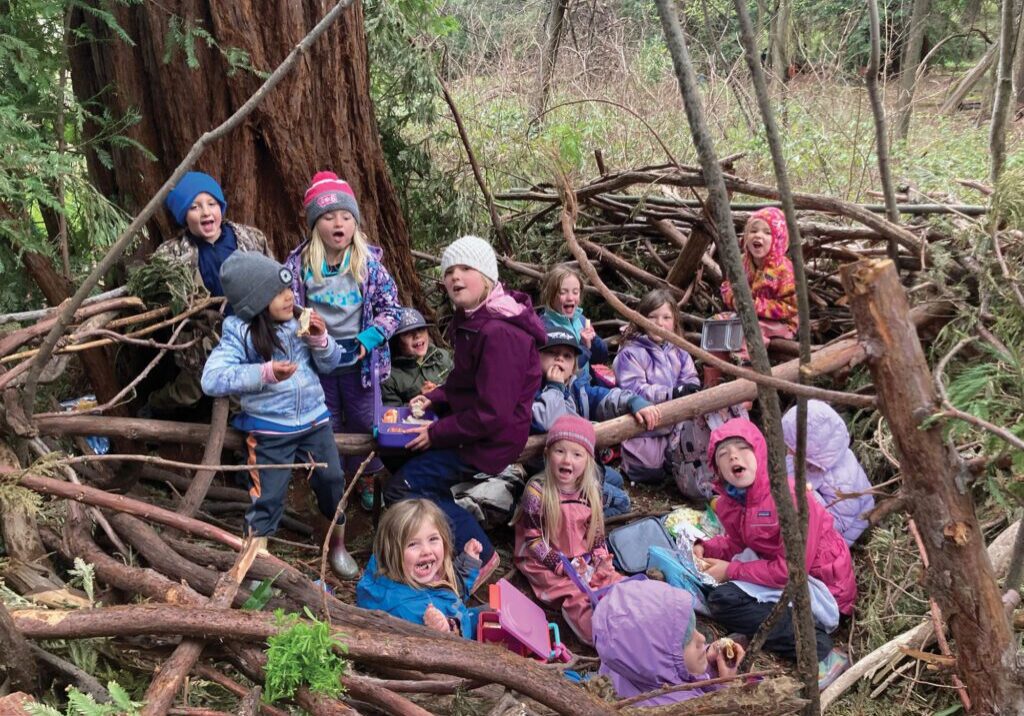We’ve all disposed of food scraps at some point, and if we bin them, we don’t usually think about what happens next. Here in California, over half of our trash is organic material such as food scraps and yard waste. In fact, according to the EPA, landfills across the nation contain more food waste than any other kind of garbage – and that impacts both our climate and our community.
Methane and food waste
Landfills are ideal environments for anaerobic decomposition, meaning trash is consumed by microbes that don’t require oxygen. Aerobic decomposition produces only compost, water, heat and a little carbon dioxide. However, when anaerobic bacteria break down organic material, they release methane gas . . . and a lot of it.
Currently, we’re throwing away 2.5 billion meals worth of donatable food each year, despite a whopping one in five Californians who don’t have enough to eat. Meanwhile, those menacing microbes break down food that could have fed a hungry human belly, producing 20% of the state’s methane pollution in the process. That’s bad news because methane is 84 times better at trapping heat in the atmosphere than CO2.
That can feel pretty discouraging, but the North State is stepping up to the dinner plate in a number of innovative ways. Each county is working to help the local environment and the people living in it.
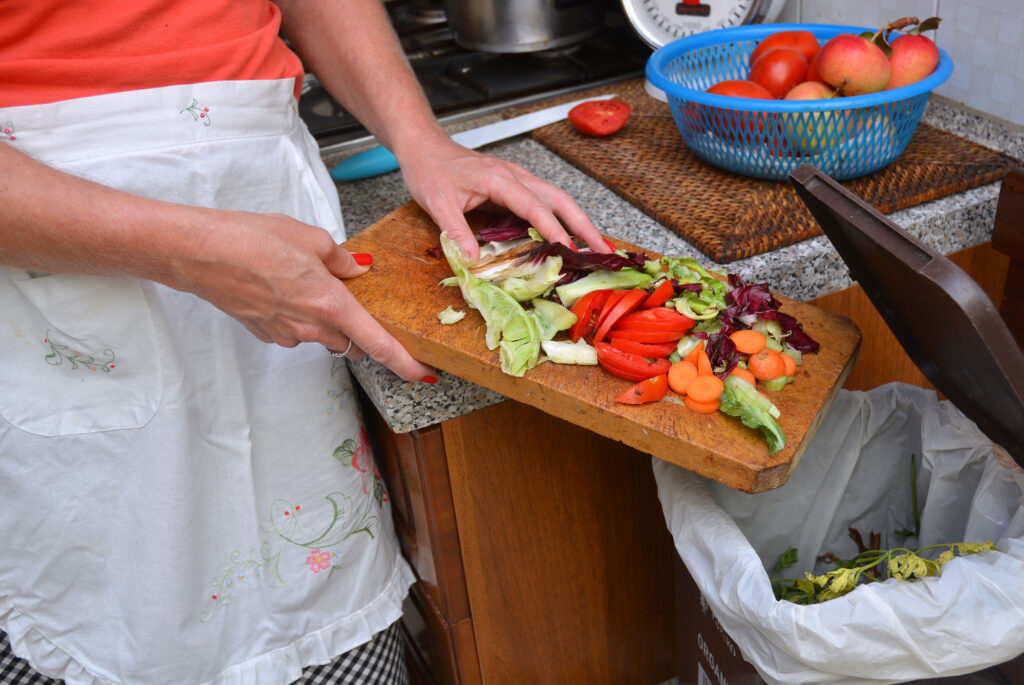
Food scraps that end up in the land fill impact our climate and our community.
North State counties, cities & councils compost, mulch, recover food
The Butte Environmental Council (BEC) is on the job with Drop in the Bucket, a weekly compost pickup service designed to reduce Butte’s environmental impact. “This service is completely free, but participants can choose to donate to the program if they would like to help support everything that goes into it, such as transportation and materials,” Miranda Kokoszka of BEC says. DitB serves around 30 Chico households, with staff and volunteers bringing the food scraps to four participating gardens for composting. Miranda says, “Through these efforts we hope to encourage sustainability in our community, provide nutritious compost to gardens, and divert food waste from going to the landfill.”
Tehama County is in the planning phases for many actions (like compost collection services), but some promising programs are already in full swing. Residents already have yard waste collection services, with debris either being sent to a compost facility in Orland or redistributed at the Tehama County/Red Bluff Landfill, under their free mulch giveaway program. With drought being a constant concern for Californians, the moisture-conserving benefits of mulch can be a boon for any Golden State gardener.
Paul Freund, Organic Materials Program Coordinator for the Tehama County Solid Waste Management Agency, says that, in 2022 alone, Tehama County recovered 431,155 pounds of donatable food that could have been thrown out through their recovery program. “Our success with the food recovery aspect is due in part to there already being a large network of food pantries operating in Tehama County,” Paul says. “We just had to connect the dots and found that the 16 pantries in our county could easily accommodate all potential donated food.”
CalRecycle is helping local governments build on their progress toward full compliance with SB 1383, the bill to reduce organic waste. Lance Klug, from CalRecycle, says, “recycling organic waste is one of the fastest and easiest ways we can impact climate change and move California toward a circular-use economy.” With waste being used for compost, mulch and even bio-fuel, the economic and ecological benefits are vast.
The City of Redding’s pilot program coordinates with around 50 local businesses to collect their organics at no extra cost. Implementing clean, green methods, they compost quickly (in 3-6 weeks). Some restaurants report a decrease in their trash bills, too. Pete’s Brew House on Hilltop is a shining example of successful composting practices. Staff scrape dirty plates into compost bins behind the restaurant, filling them each week and diverting all that organic waste from going to landfill.
Even less populated areas are going greener. Local farmer and conservationist Sky Stone created Shasta Compost in 2020, to do his part. For a year and a half, he collected food waste from around 40 participating households in Siskiyou County each week. Stone gave the compost created from these kitchen scraps back to his contributors, but despite local popularity, it wasn’t profitable enough to continue.
“I reached some bureaucratic roadblocks in getting a permit, and also would need more customers and volume to make it viable,” Sky says. “I’m passionate about starting a pilot program in Siskiyou county,” he went on to say, explaining that start-up funding and support are required to make it work in his rural area. He’s written out program ideas for project expansion, and the SB 1383 grant funding might just be the jump-start he’s needed.
Food waste is a big issue, but one with myriad solutions large and small. We can all make a difference, whether we represent a whole business or a single home. If you’re a grocer or restauranteur, reach out to your local food banks or community coordinators. And for everyone else, let’s compost, consider how much food we’ll use when we’re shopping, and remember: many of these programs rely on volunteers. Every ordinary citizen can be a superhero for their community.
Posted in: Planet Support
Comment Policy: All viewpoints are welcome, but comments should remain relevant. Personal attacks, profanity, and aggressive behavior are not allowed. No spam, advertising, or promoting of products/services. Please, only use your real name and limit the amount of links submitted in your comment.
You Might Also Like...
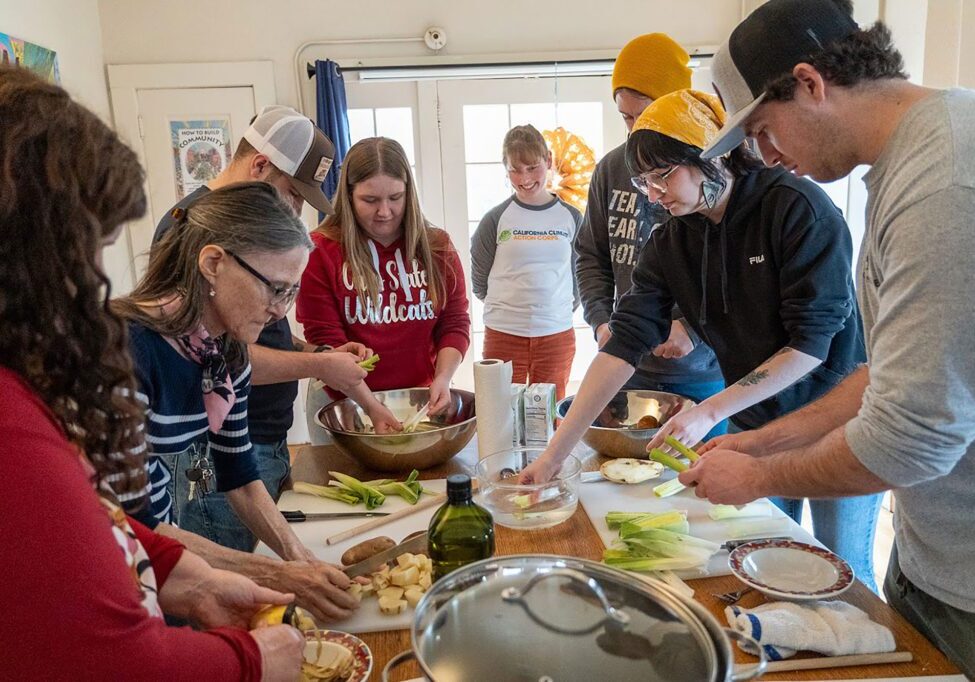
Butte Environmental Council: Advocating for a Healthy Community
Located in gorgeous Butte County, the Butte Environmental Council (BCE) is a grassroots nonprofit organization dedicated to protecting the environmental health of Butte County. Supported by 300 members, over 1,000 […]
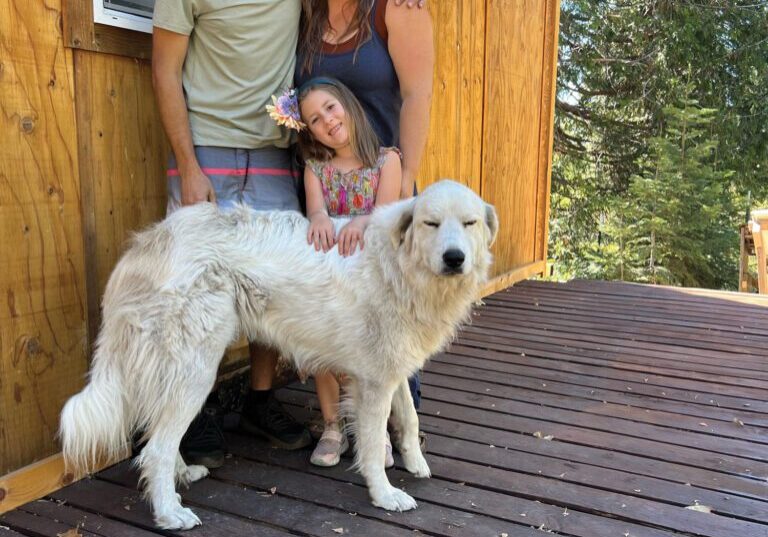
From Tiny Homes to Cabin Kits: Local Innovative Housing Solutions for Eco-Conscious Parents
As the world becomes increasingly aware of the need for sustainable living, innovative housing solutions can align with eco-conscious values. Alternative housing such as tiny homes and cabin kits are […]
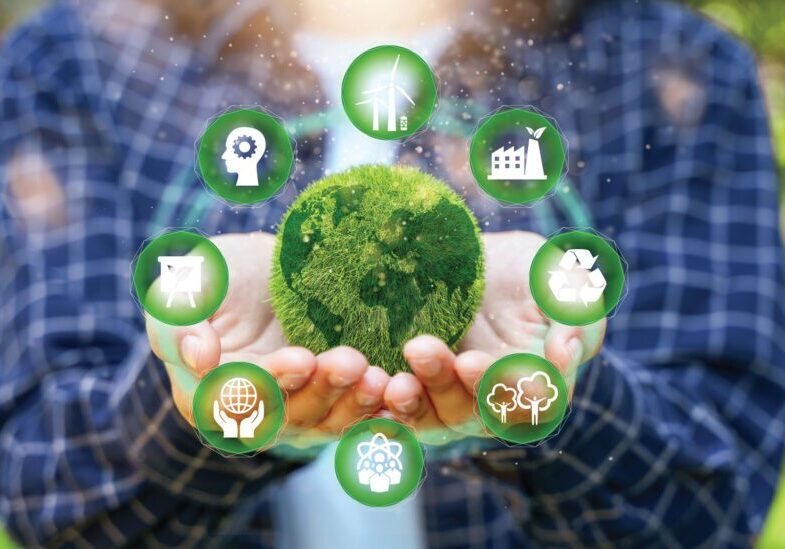
In the Zone with Green Loan Support
Reduce, reuse and recycle are words most of us have heard since childhood. But for GreenLoan Support in Tehama County, it’s not just talk. GreenLoan Support means to make this […]
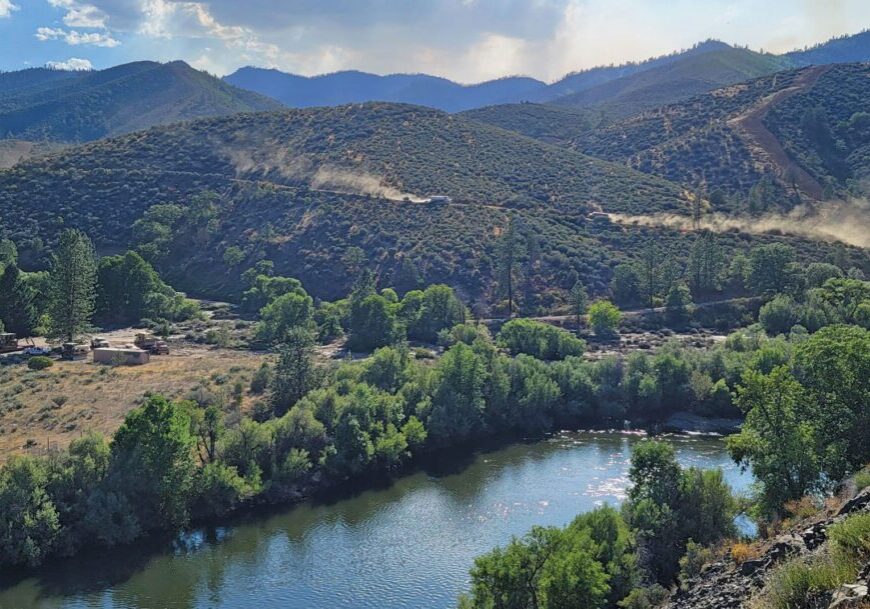
Spotlight on Karuk Tribe: Habitat Restoration on the Klamath River
The removal of four dams from the Klamath River has opened hundreds of miles of habitat for fish in California and Oregon. Already, salmon and steelhead have found their way […]



